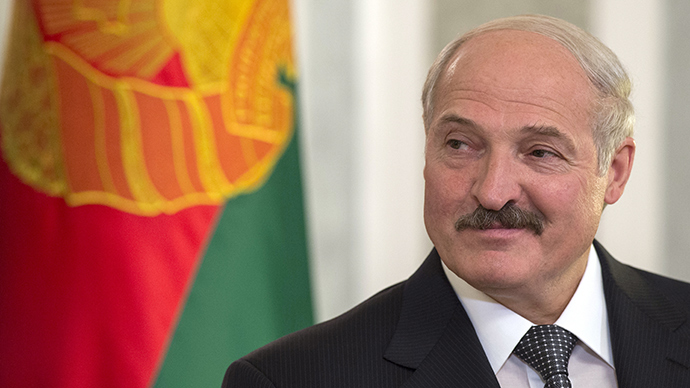In Ukrainian civil war and the EU’s onslaught on Eurasia, Belarus is the winner

As the mainstream Western press keeps lamenting Belarus’s rising influence, very few commentators dare to explain why "the last dictatorship in Europe" became the only possible venue for peace talks between the warring Ukrainian parties.
The explanation is not quite flattering for the countries of the EU: it turned out that they all were biased in their attitude to the conflict in Ukraine, all of them to various extents joined in the Western chorus of lies about the "peaceful" protests on Maidan in January-February 2014 and about the "democratic nature" of the nationalist regime that holds power in Kiev now.
In this situation, the Belarus President Aleksandr Lukashenko happened to be the "smallest evil" for the embattled people of Donetsk and Lugansk, in east Ukraine. Despite his declaration of non-recognition of the statehood of the self-proclaimed People’s Republics of Donetsk and Lugansk - or DNR and LNR - he at least did not insult the martyred regions, unlike many of Ukraine's European "friends" who preferred not to notice the suffering of the people whose lives and homes were destroyed by the firepower of the regime that had installed itself in Kiev. In the Ukrainian civil war, the supposedly dictatorial Belarus cracked up to be the only European country which did not take sides.
Meanwhile, even Lukashenko's sworn enemies (which include 99 percent of the Western press and a hefty 50 percent of Moscow-based liberal print press) have to admit that Belarus is safely out of its recent financial crisis. The country of 10 million people, which has neither oil nor natural gas, is cashing in on the West's self-destructive policy of sanctions against Russia, becoming a real bridge between Eurasia and the West - a role which Ukraine could play if it had not fallen victim to internal divisions.
And yes, Belarus is now a bridge to all of Eurasia, not just Russia. The Russian parliament and president have approved the creation of the Eurasian Economic Union, with the agreement signed in Kazakhstan's capital Astana in May 2014. The Eurasian Economic Union will connect the economies of Belarus, Russia and Kazakhstan. Armenia and Kyrgyzstan promised to join before the agreements gets full enforced in January 2015.
Thus Belarus will be the West's link to a market of 170 million people, united by the joint customs zone. Paradoxically, it is the actions of the "non-dictatorships", which made the "dictatorship" a success. The West's anti-Russian sanctions and the self-isolation of Ukraine from Russia make Belarus the main bridge for these 170 million consumers and producers to the West.
In this situation, the usual Western talk about the "imminent collapse" of the Belarusian economy, the talk we have been hearing since Lukashenko's coming to power in 1994, loses all sense. Even the European Bank of Reconstruction and Development (EBRD), whose representatives recently visited Minsk, had to acknowledge that Belarus restarted economic growth. Besides Moscow, Lukashenko recently visited Moldova's capital Chisinau. It looks like now that Moldova has fully engaged itself in the Association Agreement with the EU, Belarus becomes the "indispensable nation" for Moldova also. Now that Moldova is a member of the free trade zone with the EU, Russia may cut its special trade status and further contacts will be conducted via Belarus.
Dmitry Babich for RT
Dmitry Babich is a political analyst for Voice of Russia radio
station
The statements, views and opinions expressed in this column are solely those of the author and do not necessarily represent those of RT.
The statements, views and opinions expressed in this column are solely those of the author and do not necessarily represent those of RT.












